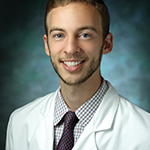‘[Paul showed me] what I could do with what I had trained to do—apply basic research tools, one by one.’ —Cornelius Boerkoel, MD, PhD
He was a man of science but also believed that good doctors had therapeutic powers that transcended making diagnoses and suggesting treatments. He loved the story of Ambroise Paré, a 16th-century French surgeon whose mere presence on the battlefield is said to have diminished the pain of wounded soldiers—and he was convinced the tale wasn’t apocryphal. Most of all, as Freedberg saw it, doctors had a duty to help guide their patients through death. He spoke openly with the terminally ill about their fears, sat with many patients during their final weeks …”
What Others Say about Dr. Plotz
In a similar fashion, Dr. Plotz was honored by his colleagues at a 2011 symposium honoring his work at the NIH.
Richard Siegel, MD, PhD, former chief of the Autoimmunity Branch of NIAMS, had this to say about Dr. Plotz: “Dr. Plotz was my Sarastro when I came to NIH. He was an oasis of calm in an ocean of chaos, guiding me through the tenure track.”
Walter Reich, MD, along with Dr. Plotz, co-chairs the Committee of Concerned Scientists, an independent, international organization devoted to the protection and advancement of human rights and scientific freedom of scientists, physicians and scholars. Dr. Reich noted the committee “is a part of Paul’s life that explains so much else about what he has done, including his vocation in medicine—and how it could not be otherwise.” He referenced Dr. Plotz’s work helping Soviet refusenik scientists emigrate to the U.S. in the mid-1980s and his work in the 1960s with the U.S. Public Health Service investigating Southern hospitals suspected of segregating patients.
Cornelius Boerkoel, MD, PhD, director of the NIH’s Undiagnosed Diseases Program’s Translational Research Laboratory, shared the following regarding Dr. Plotz: “In many ways, Paul rescued my career in medicine. I had patients in front of me who needed a solution. I had been trained to use basic science tools, but the way the system worked was, you collected a cohort, … you built a mouse model, and then, maybe in five decades, you could make a difference to that person you saw. [Paul showed me] what I could do with what I had trained to do—apply basic research tools, one by one.”
 Jason Liebowitz, MD, completed his fellowship in rheumatology at Johns Hopkins University, Baltimore, where he also earned his MD. He is currently in practice with Arthritis, Rheumatic, and Back Disease Associates, New Jersey.
Jason Liebowitz, MD, completed his fellowship in rheumatology at Johns Hopkins University, Baltimore, where he also earned his MD. He is currently in practice with Arthritis, Rheumatic, and Back Disease Associates, New Jersey.